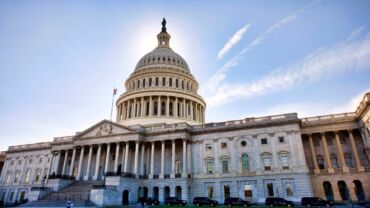Requirements Related to Surprise Billing, Part II; Petition Process for Certification of IDR Entities
Available at https://www.cms.gov/nosurprises/help-resolve-payment-disputes/submit-feedback-on-applicants
HHS has provided an online process for health plans and insurers to petition HHS to deny the application of an entity seeking certification as a surprise medical billing independent dispute resolution (IDR) entity. As background, the Consolidated Appropriations Act, 2021 comprehensively revised and expanded the Affordable Care Act’s patient protection requirements to shield individuals from surprise bills for emergency services, air ambulance services furnished by a nonparticipating provider, and non-emergency services furnished by a nonparticipating provider at an in-network facility in certain circumstances (see our Checkpoint Question of the Week). Agency regulations (Part I) established rules for determining the amounts payable by a plan or insurer to a provider or facility for these items and services, referred to as the “out-of-network rate” (see our Checkpoint article). And regulations (Part II), which are generally applicable to group health plans and insurers for plan and policy years beginning on or after January 1, 2022, established an IDR process for nonparticipating providers, plans, and insurers to resolve payment disputes after an unsuccessful open negotiation of the out-of-network rate (see our Checkpoint article). The agencies indicated in the Part II regulations that they were building out a portal to be used for the IDR process.
The HHS portal now contains an online application for an IDR entity to apply for certification. HHS explains that applicants must undergo a “public petition period,” during which the public (including providers, facilities, air ambulance service providers, plans, insurers, and state regulators) can submit a petition for denial of the application for certification. A list of applicants will be posted on the portal each week, and petitions must be submitted during the five-day petition window for applicants on that week’s list. After that week, feedback for those applicants closes, and a new five-day petition window opens for different applicants. Petitioners will receive an emailed acknowledgement of the receipt of their petition within ten days. After review, if the petition adequately shows a failure to comply with the IDR requirements, the applicant will be notified and have an opportunity to respond before a final decision is made on certification.
EBIA Comment: With the applicability date of the surprise billing IDR requirements rapidly approaching, we expect to see more HHS activity on the portal in the coming weeks. Calendar-year plans should be finalizing their preparations to comply with the new surprise billing rules. For more information, see EBIA’s Health Care Reform manual at Section XII.B.4 (“Expanded Patient Protections: Surprise Medical Billing (Emergency and Non-Emergency Services)”), EBIA’s Group Health Plan Mandates manual at Section XIII.B (“Patient Protections”), and EBIA’s Self-Insured Health Plans manual at Section XIII.C.7 (“Patient Protections Under the Affordable Care Act”).
Contributing Editors: EBIA Staff.







